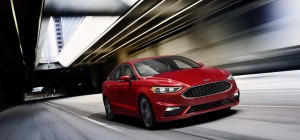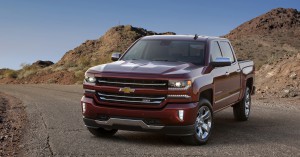
A new study shows that keeping the current CAFE standards for 2022-2025 will save car owners more than $3,000.
A new report from Consumers Union, the publishers of Consumer Reports, said retaining the current corporate average fuel economy, or CAFE, standards paves the way for buyers of 2025 model cars and trucks to save thousands of dollars during the life of their vehicle even if fuel prices hold steady.
Vehicle owners will average net savings total approximately $3,200 per car and $4,800 per truck, if the current standards for 2022-2025 remain in place, according to the study. If gas prices rise from today’s historically low levels, the savings would rise to $5,700 per car and $8,200 per truck, the study said.
Shannon Baker-Branstetter, Energy Policy counsel for Consumers Union, which has long been a proponent of CAFE standards, said retaining the standards will help save consumers not only money on operating costs, but also protect consumers against future price shocks.
“Unfortunately, we are seeing some automakers and auto industry trade groups launch an effort to weaken these reasonable and achievable standards,” she noted.
In July, the Auto Alliance, the lobbying group, which represents a dozen carmakers, said that Given changes in the market landscape, it will be a daunting challenge to meet the very aggressive requirements of the 2022-2025 federal fuel economy and greenhouse gas rule.
“Absent a vigorous commitment to focus on marketplace realities, excessive regulatory costs could impact both consumers and the employees who produce these vehicles,” the Alliance said.
The fight over CAFE standards is expected to escalate over the next several months as policy-makers weigh arguments from environmental groups and auto manufacturers.
(Despite retreat by some makers, diesel isn’t dead yet. For more, Click Here.)
The Environmental Protection Agency and the National Highway Traffic Safety Administration are reviewing the fuel economy standards for years 2022-2025 to determine if it is necessary to alter the standards in any way.
Consumers Union in support of their position notes that automakers are developing and deploying new technologies at significantly faster rates and scale than previously anticipated, including improvements to engine start/stop, continuously variable transmissions, high compression engines and 48-volt batteries.
Moreover, the costs of these technologies are expected to be similar or slightly lower than initially anticipated, allowing automakers can meet the standards primarily through advancements to traditional gasoline engines, with limited deployment of newer hybrid, all-electric or plug-in electric engines; and
In addition, automakers are surpassing current standards, Baker-Branstetter said.
(Michigan set to approve driverless vehicle testing. Click Here for the story.)
The updated CU analysis also finds that consumers can expect immediate savings from lower fuel consumption. As most consumers finance new vehicle purchases, compliance costs are spread out over the average loan term.
With annual fuel savings outweighing annualized compliance costs, consumers can expect net positive savings, starting in the first month of ownership. Those savings accelerate when loan payments end, typically after year six.
This report follows a recent Consumers Union survey that found strong consumer demand for more fuel efficient vehicles. More than 80% of respondents believe increasing fuel economy is important and a strong majority, 70%, believes government should continue to set the standards for higher efficiency. More than half of all Americans expect higher fuel efficiency in their next vehicle purchase.
“Despite low gas prices, automakers are already beating today’s fuel economy standards and the government’s analysis illustrates that automakers have the ability to meet the 2022-2025 standards,” said Baker-Branstetter. “Our analysis shows that meeting the standards is not only possible, but doing so means more money in consumers’ pockets.”
(Click Here for more about Ford becoming the NFL’s official truck.)
This report bases the costs of complying with 2025 CAFE standards on assumed incremental technology costs for new vehicles, as estimated by NHTSA and the EPA using automaker data, along with associated insurance and maintenance costs. Fuel savings are based on an analysis of estimates for miles driven using future gasoline prices from the Energy Information Administration.


But the socialistic nature of CAFE means that ALL Americans lose more freedom.